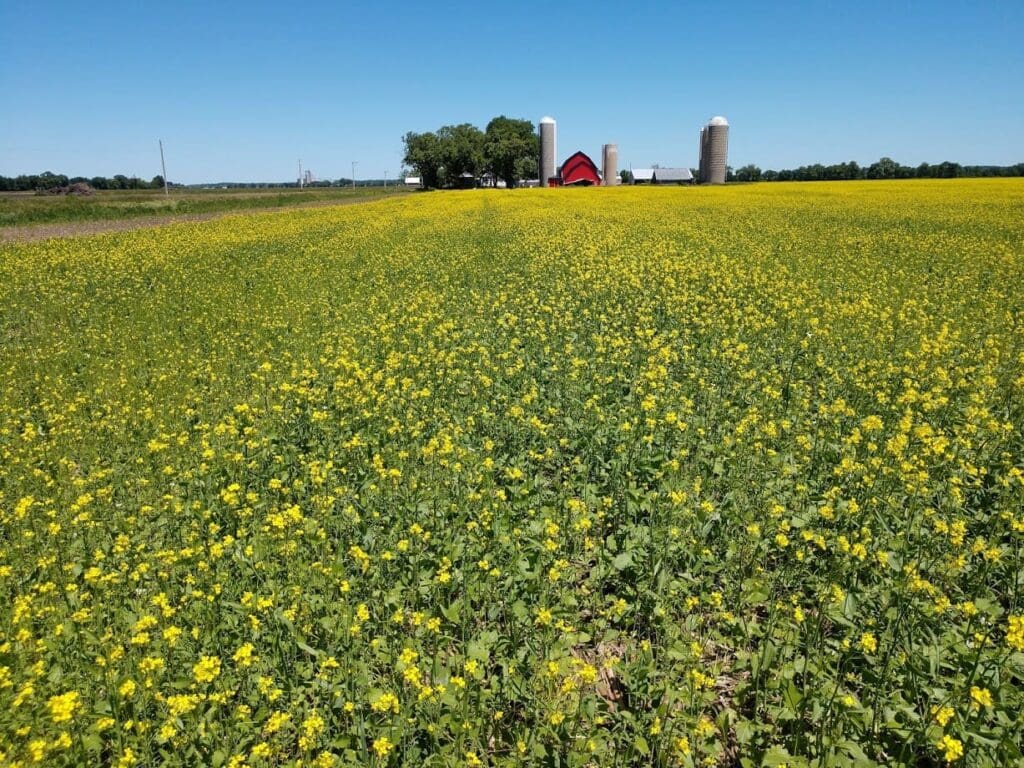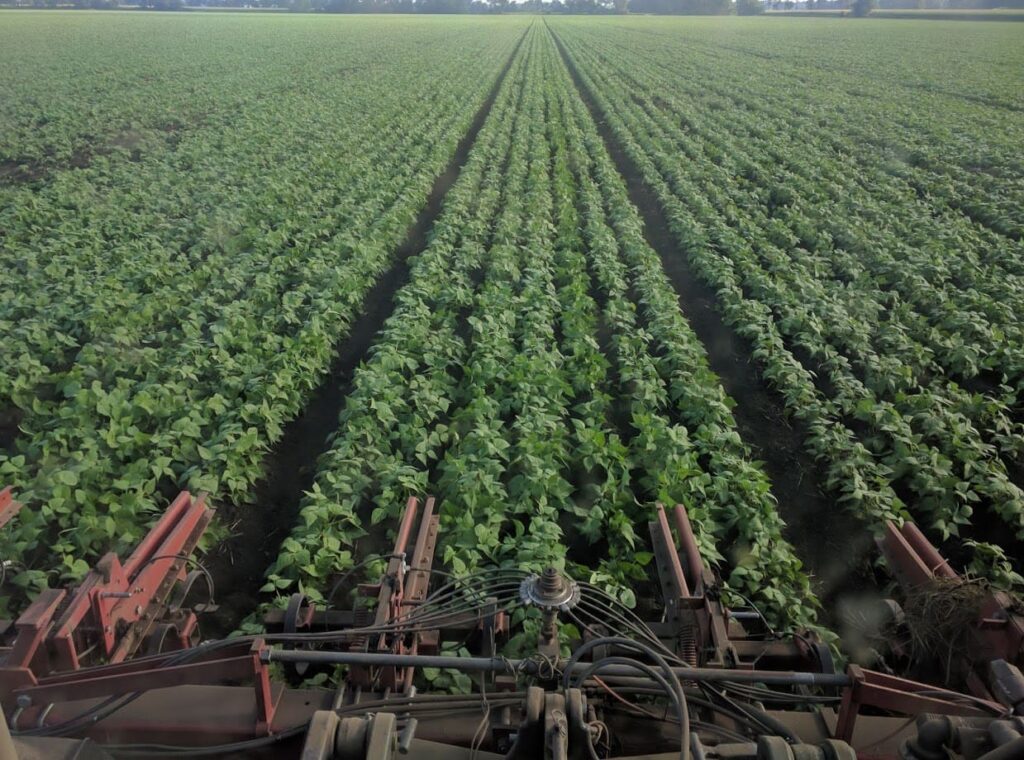Biodynamic farming is one of the most holistic and spiritually attuned methods of cultivating the land in the growing world of sustainable and regenerative food production. More than just a set of agricultural practices, biodynamic agriculture is a philosophy that views the farm as a living organism, integrating ecological, ethical, and even cosmic principles into food production. This farming method focuses on healthy crops and promotes the health of soil, plants, animals, and the broader ecosystem.
Biodynamic farming is an established agricultural system developed in the 1920s by Austrian philosopher Rudolf Steiner. It goes beyond organic farming practices, adding spiritual and cosmic elements to the farming process. While organic farming focuses on avoiding synthetic chemicals and maintaining soil health, biodynamic farming includes specific biodynamic preparations, timed planting schedules based on lunar and cosmic cycles, and a holistic approach to managing both plant and animal life.
One key concept is the view of the farm as an integrated system, where the soil, crops, animals, and even the surrounding landscape work together to create a self-sustaining ecosystem. This holistic management encourages biodiversity, minimizes the need for external inputs like chemical fertilizers, and prioritizes soil regeneration.

The core principles of biodynamic agriculture center around the health and vitality of the farm. Some of the key practices include:
Biodynamic preparations are a cornerstone of biodynamic agriculture, crucially enhancing soil fertility and promoting robust plant growth. They are crafted from natural materials such as cow manure, silica, and a variety of herbs. When applied to the soil, they stimulate biological activity, enriching the soil’s nutrient profile and fostering a healthy growing environment.
One of the most vital components of biodynamic farming is biodynamic compost. This compost is a natural plant nutrient source, significantly contributing to soil fertility. Biodynamic farmers use specific compost preparations, known as preparations 502-507, to enhance the quality and effectiveness of their compost. These preparations include yarrow, chamomile, and dandelion, which are fermented and added to the compost to boost its nutrient content and microbial activity.
By integrating these biodynamic preparations into their farming practices, biodynamic farmers create a holistic management system that supports soil health, encourages plant growth, and promotes biodiversity. This approach not only improves the quality of the soil but also ensures that the entire farm ecosystem thrives in a balanced and sustainable manner.

Many farms seek biodynamic certification to ensure that biodynamic farming practices are followed rigorously. Demeter certification, the hallmark of biodynamic farming, is the leading certification body that upholds these standards. The Demeter standard is a comprehensive ecological certification that includes stricter requirements compared to the National Organic Program and focuses on sustainable agricultural practices.
Becoming Demeter certified means that a farm not only adheres to organic standards but also follows the specific guidelines of biodynamic farming. These standards include:
Demeter USA is the sole certifier of biodynamic farms and products in the United States, ensuring adherence to both USDA organic standards and additional stringent requirements.
Farms certified by Demeter are guaranteed to follow the most rigorous and sustainable practices in agriculture, ensuring food that is grown with care for both the environment and the people who consume it.
A biodynamic farm is designed to function as a self-sustaining ecosystem, where every element works in harmony to create a balanced and healthy environment. Biodynamic farms aim to mimic nature by fostering a diverse and interconnected system, incorporating a variety of plant and animal species to enhance ecological balance.
The use of biodynamic preparations and compost is fundamental in promoting soil fertility and structure, which in turn supports the growth of healthy plants and animals. These preparations help to activate and sustain the biological processes within the soil, ensuring that it remains fertile and productive.
Biodynamic farmers manage their farms as whole systems, taking into account the intricate interrelationships between soil, plants, animals, and even the wider cosmos. This holistic approach to farming not only promotes biodiversity but also enhances soil health and provides essential ecosystem services. As a result, biodynamic farms are often more resilient and sustainable than conventional farms, capable of withstanding environmental stresses and contributing to a healthier planet.

As consumers become more mindful of how their food is produced, biodynamic farming offers an inspiring model of holistic agriculture that goes beyond simple organic practices. The key benefits include:
Biodynamic farmers also engage in partnerships with schools, medical facilities, and other organizations to promote sustainability and address broader social and economic needs.
Biodynamic farmers are part of a vibrant global community dedicated to promoting sustainable and ecological agriculture. These farmers often collaborate to share knowledge, resources, and best practices, fostering the development of biodynamic agriculture worldwide.
Demeter International plays a pivotal role in this community, providing a framework for biodynamic farmers to connect and collaborate. This organization upholds the biodynamic standard, ensuring that farms adhere to rigorous practices that promote soil health, biodiversity, and sustainability.
In addition to their global connections, biodynamic farmers are deeply rooted in their local communities. They provide fresh, healthy produce and advocate for environmental stewardship, helping to create a more sustainable and resilient food system. By working together and sharing their experiences, biodynamic farmers contribute to a collective effort to promote a more sustainable and ecological approach to agriculture, benefiting both people and the planet.

Although biodynamic farming and organic farming share many similarities, including the avoidance of synthetic chemicals and a focus on soil health, there are key differences:
As demand for sustainably grown food continues to rise, biodynamic agriculture stands as a powerful model for the future of farming. Biodynamic agriculture today is increasingly relevant in modern scientific studies, which evaluate its principles, practices, and efficacy. It offers a path toward healthier soil, better food, and a more sustainable relationship with the land. With its commitment to enhancing soil health, promoting biodiversity, and reducing external inputs, biodynamic farming is well-positioned to meet the needs of a growing global population while addressing the environmental challenges of our time.
Environmental science plays a crucial role in evaluating the impact of biodynamic practices on soil and ecological systems. Biodynamic composting practices are particularly noteworthy for bringing more carbon into the soil, thereby enhancing microbial diversity and stabilizing nutrients. By choosing Demeter-certified products, consumers can support a farming system that respects nature, nurtures the soil, and produces food that is not only good for the body but also good for the planet.
In conclusion, biodynamic farming is a powerful and holistic approach to food production that integrates the best of organic farming with spiritual and ecological wisdom. Allan Savory’s approach to holistic management, which integrates economic, social, and environmental factors, is a key example of this philosophy. It offers a sustainable and regenerative method of farming that prioritizes soil health, promotes biodiversity, and integrates the rhythms of nature into daily farm management. Biodynamic farming also enhances human creativity by fostering a conscious and participatory approach to agriculture, allowing individuals to better understand and respond to ecological needs. Additionally, it mimics nature by fostering diverse ecosystems, replicating the diversity found in natural ecosystems. As biodynamic certification grows in recognition, more biodynamic farmers are able to share their commitment to holistic, sustainable agriculture with the world.
Whether you’re a farmer, gardener, or conscious consumer, exploring biodynamics is an excellent way to support sustainable food systems that are better for people and the planet.
